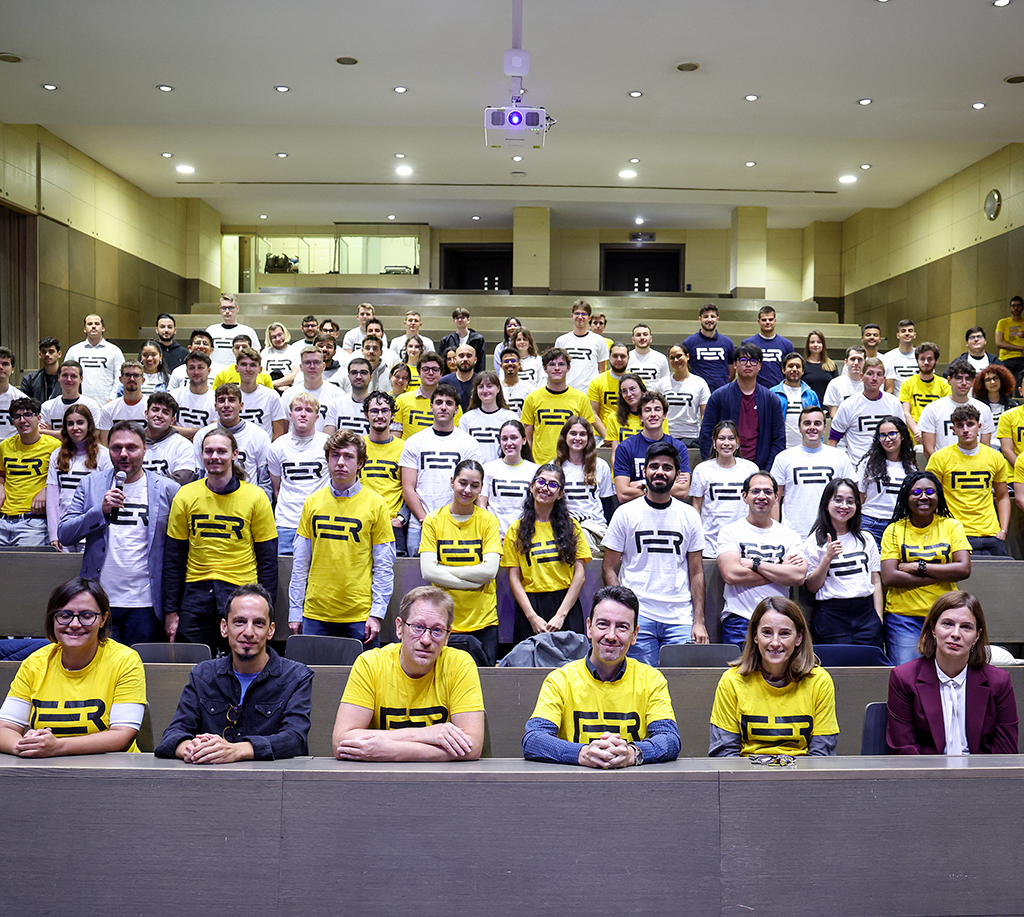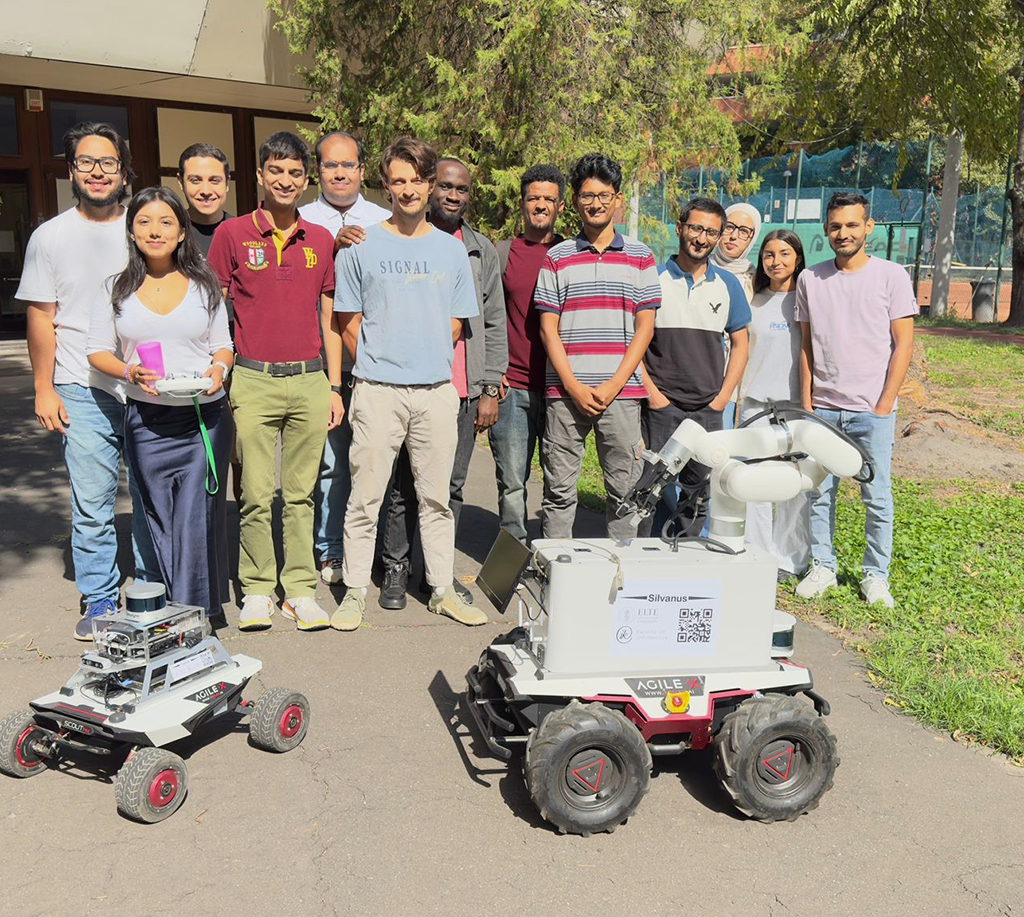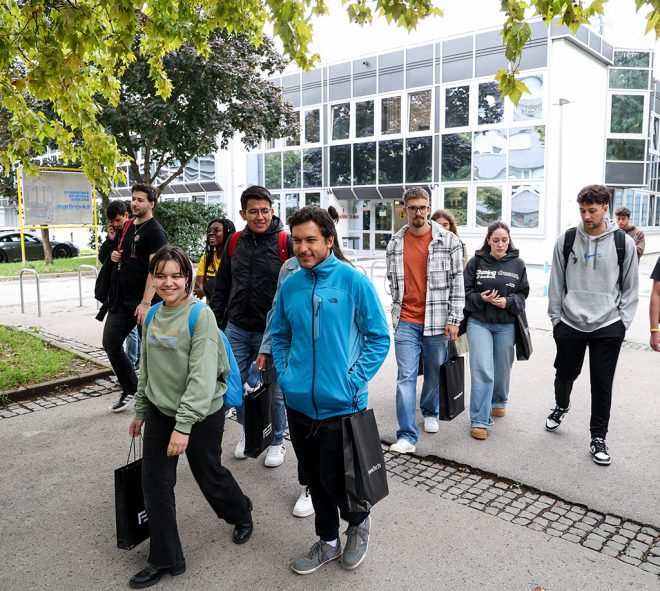This autumn marks an exciting milestone for the fourth generation of Erasmus Mundus IFRoS Master in Intelligent Field Robotic Systems (IFRoS4) students: the beginning of their third semester, a defining chapter where they specialize, explore, and apply everything they’ve learned so far in the field of robotics and artificial intelligence.
After two semesters at the University of Girona (UdG), students have now set off to continue their studies at one of our partner universities: Eötvös Loránd University (ELTE, Hungary) or the University of Zagreb – Faculty of Electrical Engineering and Computing (UNIZG-FER, Croatia). Each destination offers a unique specialization pathway, hands-on robotics research, and a rich cultural experience.
In Budapest, after a slight delay, 13 students, the largest group so far, have officially started their semester focusing on autonomous systems and self-driving land vehicles, one of the key domains in modern robotics and automation. The specialization of their choice includes courses on 3D sensing, vehicle and sensor technology, and intelligent field robotics, offering a strong foundation in robotic perception and control systems.
The students have been introduced to ELTE’s research robots, Silvanus and Pomona, and have received an overview of the exciting projects they’ll be working on throughout the semester, under the expert guidance of Zoltán Istenes, the ELTE program lead. Some of them are already looking for internships and preparing for their thesis project in autonomous robotics applications, showing the motivation and ambition driving this international group.

During Welcome Week, the first week of September, they had the opportunity to meet their project coordinators, connect with fellow students from a European double degree program, and explore our campus through a guided tour. Outside of their studies, students are also getting to know the beautiful city of Budapest: visiting restaurants, exploring nightlife, and touring famous sights. Some have already started planning internships and preparing their master’s thesis projects for the final semester, a clear sign of the motivation and ambition driving this international group.
Meanwhile, in Zagreb, IFRoS students have joined a thriving international robotics community at FER, which this year welcomed nearly 100 students from 19 countries. Dean Prof. Vedran Bilas personally greeted the newcomers, emphasizing FER’s commitment to innovation (including robotics), diversity, and excellence.
Throughout the semester, students at FER will immerse themselves in robotics research, machine learning and interdisciplinary collaboration while building professional networks that span across Europe and beyond. They’ll also experience life in one of the most dynamic technological hubs in the region — and, of course, enjoy Croatian culture and hospitality.

Wherever they are, in the labs of Budapest or the lecture halls of Zagreb, IFRoS students are part of a truly European robotics learning experience.
The program’s joint structure not only allows them to study in multiple countries but also to collaborate with peers, researchers, and industry partners across borders.
We can’t wait to see what they’ll achieve next and to welcome the next cohort of students who will start their own Erasmus Mundus in Intelligent Field robotic Systems adventure in September 2026.

